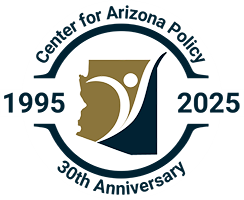When states began limited reopening of businesses after the initial COVID-19 shutdown last year, some refused to include churches and other houses of worship. Perhaps the worst offense occurred in Las Vegas, where bowling alleys, retail shops, and even casinos were open at 50% capacity, but churches were confined to just 50 people.
The Ninth Circuit Court of Appeals struck down that order after the U.S. Supreme Court set the precedent in a related case out of New York.
A week ago, the Court spoke again, and again, it upheld the First Amendment by ruling churches cannot be held to more restrictions than secular establishments. The series of rulings has clearly established that practicing one’s religion is essential.
Justice Neil Gorsuch spelled out the obvious offense, “California is not as concerned with the close physical proximity of hairstylists or manicurists to their customers, whom they touch and remain near for extended periods … If Hollywood may host a studio audience or film a singing competition while not a single soul may enter California’s churches, synagogues, and mosques, something has gone seriously awry … When a State so obviously targets religion for differential treatment, our job becomes that much clearer … Even in times of crisis—perhaps especially in times of crisis—we have a duty to hold governments to the Constitution.”
The Supreme Court has upheld religious freedom during the pandemic again and again. Still, discrimination against religious institutions continues. More needs to be done.
Local Focus:
Rep. Ben Toma sponsored HB 2648, the Religion is Essential Act this session, which ensures religious organizations can continue operating and engage in religious services during a state of emergency. Thankfully, Governor Ducey has recognized and protected the First Amendment rights of religious organizations. This bill ensures those rights are protected by future governors and legislators by putting the protections into law.
Religious organizations provide essential services that are vital to the health and welfare of the public. Not only in meeting the spiritual needs of our populace, but also supporting social services, health care, and economic activity.
HB 2648 covers all religious institutions and organizations, including religious food banks, visiting the sick, and other ministry work. The bottom line is, HB 2648 ensures that churches and religious organizations are not treated worse than other entities.
The government has a duty to uphold the First Amendment, and it should not be singling out churches with extra regulations. Extraordinary times are no excuse for officials favoring the secular over the religious.
The bill passed out of committee by a bipartisan 7-3 vote this week. Secularists joined in opposition with a few representatives on the House Judiciary Committee who warned of a fight if or when the bill makes it to the House floor.
Also this week at the State Capitol:
HB 2404, sponsored by Representative Michelle Udall, would fund the Family Health Pilot Program to help meet the needs of women seeking an abortion so they can consider fully their option to choose life. It passed out of the House Appropriations committee this week on a party-line vote with Republicans voting for and Democrats against. Representative Steve Kaiser dedicated his yes vote to Tina Stephens who testified to the fact that she could not find such services when she searched years ago. She regrets her abortion and said she would have a 12-year-old son or daughter today if such a program existed then.
Follow the progress of CAP-supported bills on our Bill Tracker.
SB 1425 and HB 2642 would add gender identity and sexual orientation to protected classes. The effects of these bills target those with religious beliefs or others who hold to an historical and widespread belief of human sexuality and biology.
ICYMI
- The annual 40 Days for Life campaign kicks off next week. Get details here on how you can join the prayer vigil.
- Read here about what the Tucson Unified School District considers important instruction in American Government class. SB 1058 would ensure parents have reasonable access to the subject matter and materials used in Arizona’s public schools.
- Senator Nancy Barto and Representative Michelle Udall penned an op-ed explaining how SB 1251 and HB 2404 will save lives and protect women.
Stay connected and consider receiving additional publications by joining the CAP Network.


